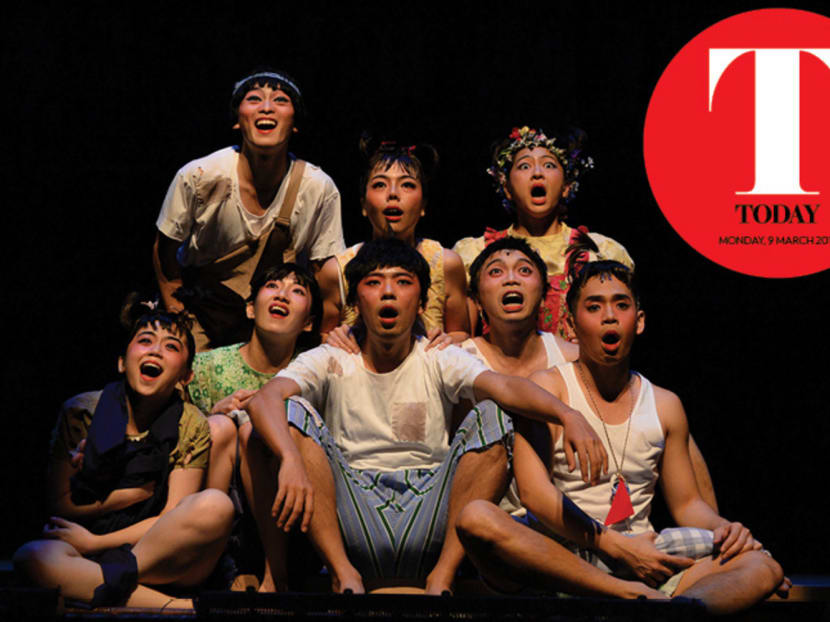Theatre review: Titoudao
SINGAPORE — I have never seen a wayang (street opera) performance. But as an introduction to this traditional art form, Titoudao might just be the ticket. This fifth staging by local theatre company Toy Factory boasts a brand new cast and is performed in English, Mandarin and Hokkien with surtitles on screen.

SINGAPORE — I have never seen a wayang (street opera) performance. But as an introduction to this traditional art form, Titoudao might just be the ticket. This fifth staging by local theatre company Toy Factory boasts a brand new cast and is performed in English, Mandarin and Hokkien with surtitles on screen.
First staged in 1994, the iconic play written and directed by its artistic director Goh Boon Teck is based on his mother’s life as a famous Chinese opera artiste. Staged as a play-within-a-play set in the 1940s, it traces the story of Madam Oon Ah Chiam through the ups and downs in her illustrious career. The title refers to the most famous character she has played, the male servant Titoudao.
During a particularly bright song-and-dance moment between two crooning lovebirds, my partner turned to me and whispered: “Is ‘she’ really a woman?” I squinted hard at the willowy thespian singing in soprano. I had always been pretty good at reading body language, so after a quick study of the actor’s facial movements – coy eyes, gentle lips, a doleful expression and that feminine flick of those long sleeves along with the graceful sway of her hips – I confidently replied: “Definitely not a dude. Just a very tall woman.”
Turns out, I was wrong. Trev Neo totally owned the stage and was very convincing as the righteous character Teng Swee Lian, whose “evil” half-sister Lay Kiao (played by Rei Poh) had every one in stitches with her antics. With his overly exaggerated dainty fan dance, the latter reminded me of the cute, big-hearted character in the popular Iron Ladies movies.
But all eyes were on Audrey Luo, who plays Titoudao/Oon Ah Chiam. She is an award-winning actor who truly makes Singapore proud. Her solo numbers although short, were powerful with emotion, leaving me with serious goose bumps. Also, Luo’s lithe transformation as she shifted between the various characters — and aged along the way — were fluid and believable.
Luo’s impressive high-energy act towards the end of the show, as she steadily channelled the different personalities of classic characters such as Ne Zha and Sun Wu Kong, was worthy of a standing ovation in recognition for Luo’s mastery of subtleties. Another noteworthy actor from the accomplished cast is Jo Tan, who morphed into hilarious characters — from a tight-fisted ice kachang seller, to a menopausal grouchy matriarch, and then into a dashing Hokkien singing Chinese emperor complete with facial hair — with accomplished comic timing.
I was further impressed with how the adept cast tackled challenging acrobatic moves, such as back-rolls, somersaults and high-kicks, among quick costume changes, all while spouting lines in three languages (though not at the same time).
As a treat, the real Madam Oon (now a sprightly 72), made a surprise appearance towards the end. Earnestly seeking the support of the new generation of Singaporeans, Oon passionately urged for the preservation of our culture, so the art of Chinese opera would not be lost to history.
I lost my wayang virginity to Titoudao and had absolutely no regrets. We may not see much wayang these days, but this play may just be that magical bridge that links us to Singapore’s vanishing treasures. NING CAI
Titoudao runs until March 14 at the Drama Centre Theatre. Tickets from SISTIC.








